本帖最后由 青蛙小王子 于 2010-9-15 11:04 编辑
【中文标题】中国移民改造“意大利制造”时装品牌
【原文标题】Chinese Remake the ‘Made in Italy’ Fashion Label
【登载媒体】纽约时报
【原文作者】RACHEL DONADIO
【原文链接】http://www.nytimes.com/2010/09/13/world/europe/13prato.html?_r=1&ref=china
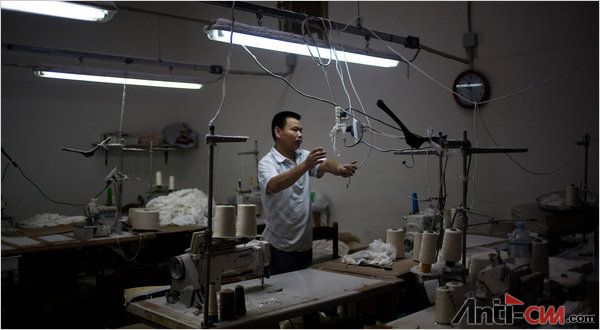
意大利普拉托熄灯,警方查抄之后,一家纺织品制造厂的中国经理关闭了车间。
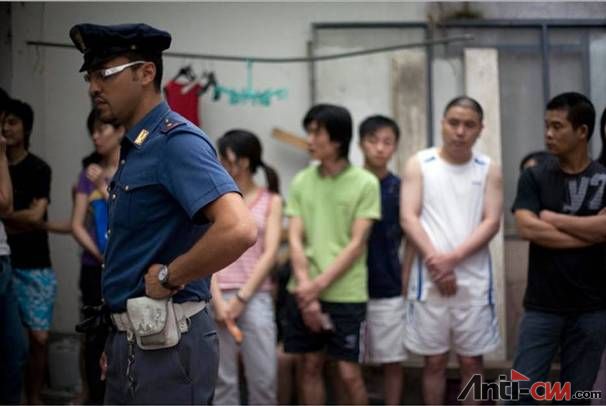
在上世纪80年代,中国人开始涌入意大利普拉托,他们改变了这座城市,也改变了那里历史悠久了纺织品产业。普拉托现在是欧洲最大的中国移民聚集地,既有合法移民,也有非法移民。6月份,警方扫荡了两处著名的非法工厂,一些合法的移民(如照片中背景人群)也遭到了逮捕。
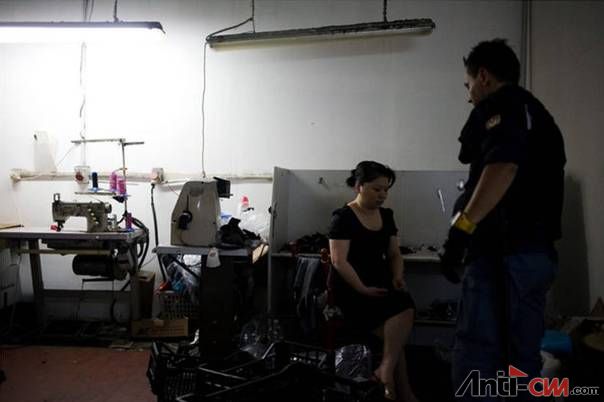
在普拉托警方的行动中,一名移民等待被问话。
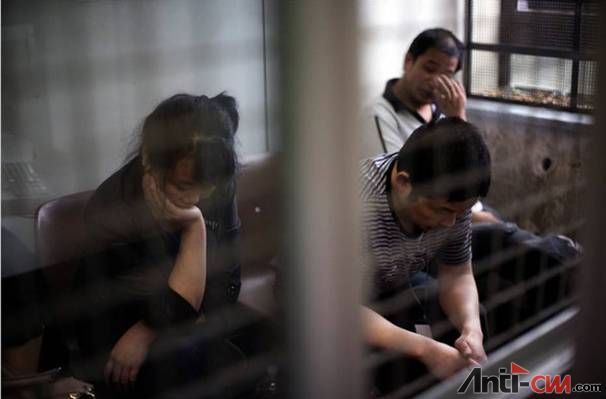
一些移民坐在普拉托警察总部的禁闭室中,等待被问话。
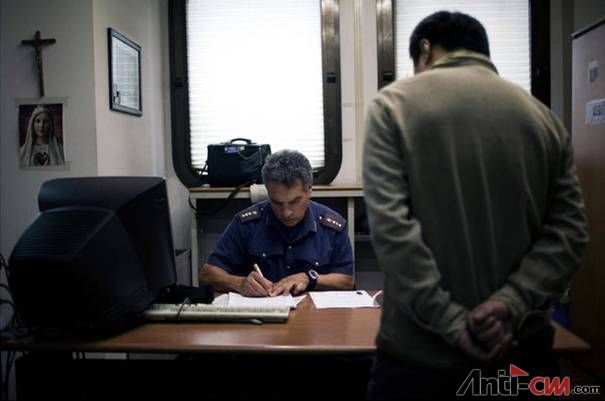
一名被认定非法的移民站在普拉托警官面前。
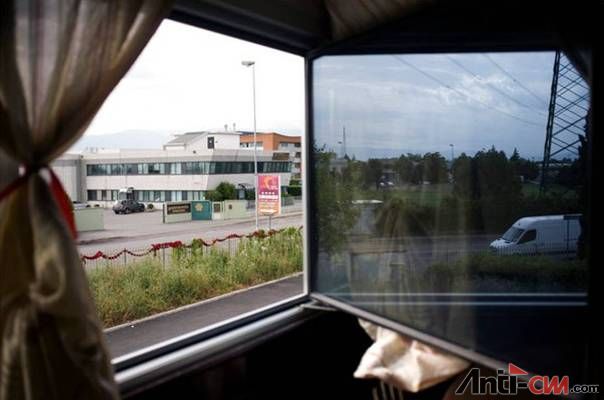
普拉托的一座批发贸易中心。
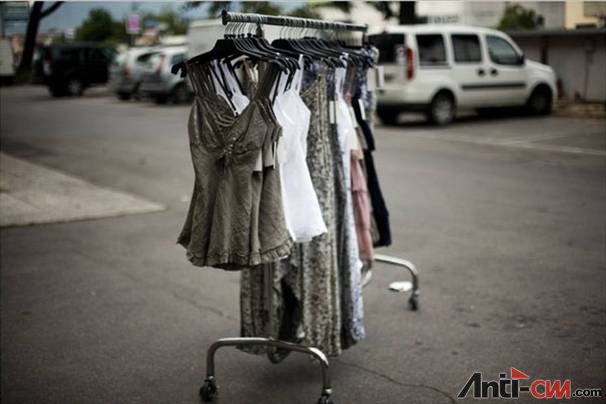
在普拉托的一个停车场内,一个挂满“pronto moda”(一种快速时尚品牌)的服装。来自欧洲各地的零售商来这里采购“意大利制造”标签的服装,然后加上巨额利润销售。
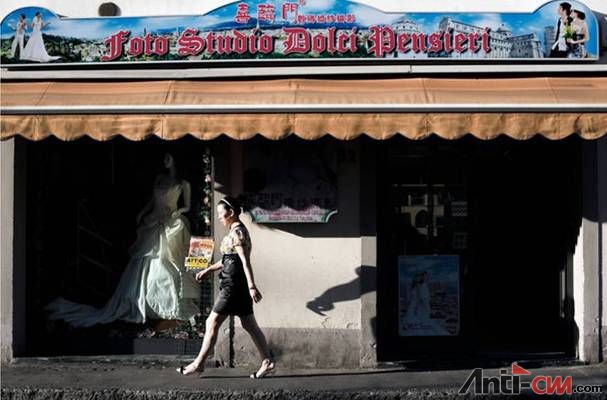
Via Pistoiese大街上的一家婚礼摄影摄像商店,这条街道是普拉托唐人街的核心地带。广告牌上用中文和意大利文写着摄影、硬件、电子产品和赌博。
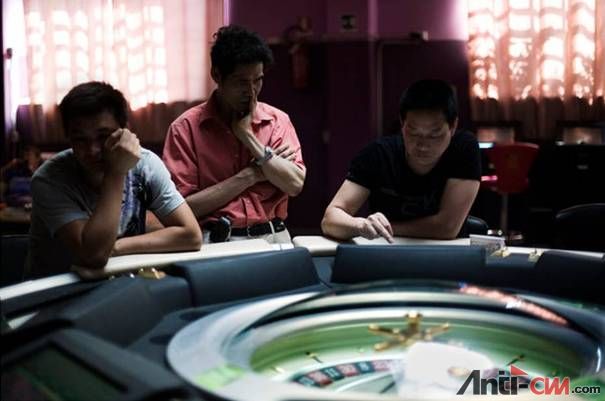
Via Pistoiese大街上的赌场。
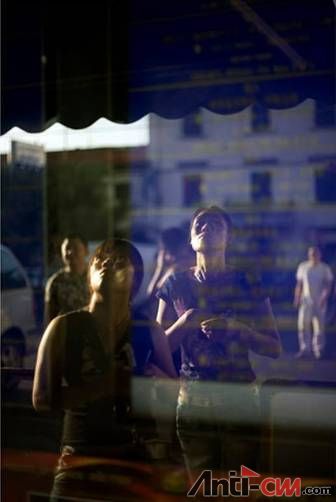
中国移民在Via Pistoiese大街上的电子公告板上寻找服装工厂的工作机会。
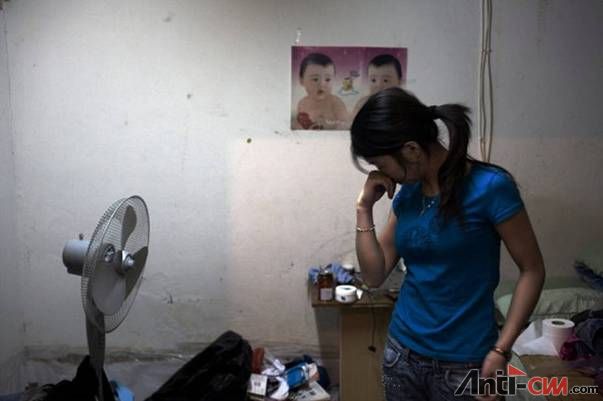
警方扫荡普拉托的非法工厂之后,一名中国移民在收拾自己的东西。
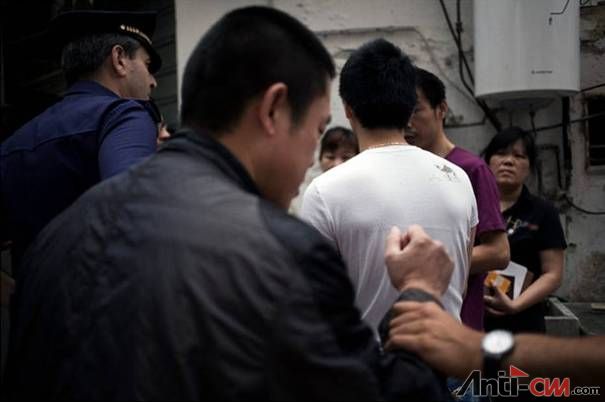
警方在普拉托扫荡之后,找出非法移民并带走。
意大利,普拉托——多年以来,意大利痛苦地意识到无法在与中国的竞争中获得价格优势,于是,商业人士的梦想就转化为,意大利出售的是质量,不是数量。几个世纪以来,这座比邻佛罗伦萨的半封闭中世纪城市生产出世界上最好的纺织品,成为了“意大利制造”这种极致精美的代名词的发源地。
然后,中国人来了。
从上世纪80年代末开始,中国工人先是零零散散,然后是成千上万地来到普拉托定居。他们把这个纺织品集散中心转化成一个低端的服装生产基地,很多人因此发家致富,但是也积累了当地的怨气,并且引发了近期的官方打击行动,很多人因此抱怨官方的歧视和伪善行为。
这座城市目前是中国人在欧洲最大的聚集地,有些是合法移民,更多的是非法移民。在托斯卡纳区的核心地带,中国工人在3200家生产企业中夜以继日地生产出低端服装、鞋和饰物,原材料大都来自中国,以中等价格通过低端零售商在全世界销售。
因此,“意大利制造”这个概念出现了一些问题。意大利软弱的执法力度,以及对违法行为的高度忍耐性,让中国人有机会混淆“中国制造”与“意大利制造”之间的区别,并以此削弱了意大利产品独占高端市场的威信和能力。
部分不满情绪是文化方面的:城市典型的意大利风格被唐人街取而代之,到处是意大利语和中文的标牌,杂货店里出售的都是中国进口食品。
但是,最使一些意大利人丢脸的是,中国人利用意大利本土的游戏规则击败了他们——偷税漏税、巧妙地操纵意大利臭名昭著的复杂官僚机构——并创造出一个地下繁荣的地区,而很多普拉托当地的企业纷纷倒闭。结果是人们对移民和当地经济的恐慌。
普拉托省文化长官Edoardo Nesi说:“这或许会成为意大利的未来,我们应当关注这种风险。”
局势渐渐地超越了国家税务和移民管理部门的控制范围。根据意大利银行提供的信息,普拉托的中国人平均每天向中国汇出150万美元,大部分是从事服装和纺织品行业的获利,但是这些巨额的收入并没有体现在税收纪录中。一些当地官员说,中国人更愿意把挣到的钱寄回家乡,而不愿意在本地投资。
当局还说,中国人,或许还有一些意大利人从事的犯罪行为呈上升趋势,内容包括非法纺织品进口、偷渡、卖淫、赌博和洗黑钱。
意大利的其它地区在密切关注事态的发展。Silvia Pieraccini是《中国围困》一书的作者,书中描述了“pronto moda”(一种快速时尚品牌)的经济形势。他说:“来自Emilia Romagna、Puglia和Veneto的企业都表示:‘我们不希望看到普拉托的结局。’”
自从意大利当局在今年春天开始查抄一些使用非法工人的工厂开始,当地的紧张气氛就开始上升。意大利公诉人在6月底逮捕了24人,并调查了普拉托地区的100家企业,当地气氛越加紧张。这些人被起诉的罪名包括洗黑钱、卖淫、仿造,以及把外国商品贴上“意大利制造”标签。
普拉托的很多中国人认为,说他们破坏了这座城市是一种不公平的冒犯。恰恰相反,一些人说,是他们把普拉托从经济困境中解救出来。换句话说,如果意大利政府无法改革当地的经济,使之走上现代化的道路,别人就会站出来做这个工作。
30岁的Matteo Wong出生在中国,在普拉托长大,他经营一家咨询公司,为中国移民提供服务。他说:“如果中国人不来普拉托,这里会有pronto moda吗?中国人从意大利人手中抢走工作了吗?如果说中国人做了些什么,他们实际上给意大利人带来了很多工作机会。”
最近几个月,普拉托成为了外交话题的焦点。意大利官方说中国政府没有认真对待非法移民的问题,他们在试图与中国政府采取一致行动,来找出非法移民并将其驱逐出境。一些普拉托居民怀疑移民潮是北京剥削意大利市场的一个策略,尽管中国政府并未真正使用非法移民作为开发海外市场的手段。
意大利官员说,中国总理温家宝在10月份访问罗马的时候,普拉托应该会成为一个讨论的话题。
根据普拉托商业会所提供的数据,普拉托注册的意大利人纺织品企业自2001年以来,数量下降了一半,目前只有不到3000家,比中国人的企业少200家,而且几乎都是服装领域的企业。曾经是主要纺织品生产地和出口地的普拉托,现在占据了意大利从中国进口纺织品总量的27%。
不满情绪持续高涨。普拉托警察局长Domenico Savi在6月份说:“你是一个普通普拉托居民,有两个失业的孩子。旁边一个中国人开着一辆用非法剥削移民工人挣来的钱买来的保时捷卡宴或者奔驰。这种感觉蕴含着危机。”
根据普拉托市长办公室提供的数据,普拉托总人口为18.7万,其中有1.15万合法中国移民。据估计,城市中还有2.5万非法移民,其中大部分是中国人。
鉴于其官僚作风、保护主义政策和有组织的犯罪活动,意大利被证明是西欧最不适宜做生意的国家。但是在普拉托,中国人用了几年时间从零开始创建了一个崭新的经济体。
最经常被使用的一种手段是,在精通业务的意大利税务咨询专家和律师的帮助下,先注册一家公司,然后在税务机关查抄之前关闭这家公司,然后用一个新的税务代码在原地点重新开始经营。
意大利工业组织Confindustria普拉托办事处主任、纺织品生产商Riccardo Marini说:“中国人很聪明,不像其它国家的移民那么愚笨。”
他懊恼地说:“让大家对游戏规则有同样的理解是很困难的一件事。”
普拉托的街道慢慢地变得越来越中国化。中国人买下很多意大利人的商店和公寓,通常都是支付现金。公立学校里有越来越多的中国小学生。
质疑的声音遍地都是。Patrizia Bardazzi和她的丈夫在普拉托市中心经营一家高端服装店已经40年了,她说:“普拉托的人都是鸵鸟。我认识一些人,他们把店铺租给中国人,然后说:‘我不去市中心,那里都是中国人。’他们拿着租金去马尔米堡。”她指的是托斯卡纳的旅游胜地。
走过城市的中世纪城墙和有Filippo Lippi文艺复兴时期壁画的大教堂,不远就是Via Pistoiese大街,这里是普拉托唐人街的中心地带。用中文和意大利文制作的招牌写着婚礼摄影、硬件、电子产品和赌场。
一家超市外面在出售从中国进口的食品,一个电子公告牌滚动显示服装厂的招工启事。
这些工作都需要身处狭小的密室,长时间埋头在缝纫机后面,周围有临时睡觉的床铺。“快速时尚”的中心地带是城市郊区的一个工业区,那里遍布中国的服装批发商。
来自欧洲各地的货车排列在停车场,零售商在这里购买“意大利制造”的服装,加上巨额利润销售。他们购买的数量不多,利用欧盟自由贸易的优势,往往可以避免支付进口关税。
一个下午,来自黑山的一对夫妇把一些棉质夏装装到货车后备箱的盒子里。妻子手持一把标签粘贴枪,在每件衣服上都贴上“意大利制造”。
几个街区之外,张立向我讲述他的服装公司Luma是如何根据市场需求生产流行服饰的。张立来自温州——中国东南部的一个城市,那里的企业网络遍布世界。他在1991年移民意大利。
他向我展示了几卷布料,据他说采购自本地、印度或者中国。他一般会采购白色布料,委托普拉托的中国公司染色、切割。然后交给分供方按要求制作成衣——1000条绿色的裙子只需要花费一周,甚至几天时间。
张先生和数百个与他类似的中国人处于普拉托所谓的灰色经济地带。他们的生意部分是光明正大的,因为他们按规矩交税,也有部分是见不得人的,因为他们要依靠那些经常使用非法劳动力的分供方。(当问到他的分供方是否使用非法劳动力时,张先生笑了笑说:“你得去问那些分供方本人。”)
张先生在1998年创建了Luma,他的产品出口到30多个国家,包括中国、墨西哥、委内瑞拉、约旦和黎巴嫩。他说最大的一份订单来自意大利零售商Piazza Italia,他的客户还包括一些批发商,据说这些批发商下面的零售商包括Zara、Mango、Top Shop、Guess以及一些擅于讨价还价的欧洲零售商。
至于警方的搜查行动,他说这妨碍了生意的正常进行,让当地的华人社区深感不安,甚至很多工人都躲藏起来。
张先生说:“人们很害怕,这是一个政治决定。原来他们过于放纵,现在又控制得过于严格。”
新的司法长官
大部分的管控措施来自普拉托的新任领导班子。2009年,具有左派传统的城市选举出战后第一任右派市长,他的成功竞选得益于有效利用了当地人对“中国入侵”的恐惧心理,他还曾经尝试在欧盟内部形成对中国移民的一致态度。
Roberto Cenni市长说:“中国怎么可以在欧洲留下这样的印象呢?噪音、坏习气、卖淫。人们再也忍受不了了,他们讨厌这样的行为。”
Cenni先生身着裁减合体的西装,举止优雅,他是Go-Fin的前总裁,现在依然是持股人。这家普拉托的股份公司是几家意大利中端服饰品牌的后台公司,其中至少有一个品牌Sasch在过去10年中把大部分生产基地转移到了中国。
由于无法逆转宏观的经济形势,这位市长转而关注一些小措施,比如禁止在阳台上晾鱼;要求普拉托的所有店主讲意大利语。这为他赢得了一些当地人的赞许,但是也招致了一些顽固派的批评。
市长还加大了查抄中国企业的力度。批评人士认为这不过是做戏给媒体看,但是当地中国人认为这是毫无理由的攻击。
一个阴雨的早晨,一支由警察、税务人员和政府官员组成的队伍扫荡了两家位于普拉托郊外居民区和工业区的中国工厂。
这个隐藏在公寓后面肮脏不堪的空间里,堆满了成排的缝纫机,白色布料到处都是,尚未完工的衬衫堆在地板上。
警察把工人聚集在院子里。一个穿着拖鞋的妇女提着一只盛满尿液的黑色水桶走下楼梯,旁边跟着一个仅穿着内衣的男孩。她用结结巴巴的意大利语说:“裤子……”一个好说话的警察耸了耸肩:“好吧,让他穿上裤子。”
旁边的一个房间里,警察把几个中国工人带到一个没有窗户的小卧室中辨认身份。一个穿着蓝色T恤衫的女人坐在床上,止不住地哭哭啼啼。
警察根据证件来识别这些人的身份。“这是他的姓,对吗?”
两个工厂之间有一所小房子,院子里种着绣球花。站在门廊上的一队意大利夫妇不愿意透露自己的姓名。
丈夫说:“他们蚁居在一起,谁知道有多少人?他们紧闭大门,窗帘也不拉开。”
他的妻子拉了拉他的胳膊:“你不要谈这些事情。”然后把他拽进房间里。
很快,工厂的房东从家里赶来。73岁的Paolo Bonaiuti是个高个子,白色的头发,蓝色的眼睛。他看起来很镇静,他出示的租约上写明房租是每月2220美元。从警察的表情来判断,他们似乎不相信这份文件。
意大利的移民苦难
但是,打击行动似乎只能做到这么多。今年前半年,警方搜查了3000家中国企业中的154家。普拉托移民局主任Lina Iervasi说,“我们恐怕需要一支军队”来搜查所有的中国企业。
今年早些时候,移民局的几名官员被捕,罪名是收取贿赂来发放居住证。
前警察局长Savi先生说:“我们不会继续搜索非法移民,这是疯狂的举动,我们要在规定和现实之间寻求一个平衡。”
这个平衡点根本无法找到。
很多非法中国移民从俄罗斯或巴尔干地区乘坐汽车进入意大利,他们的护照要么丢失,要么被组织非法移民的犯罪团体没收。还有很多人使用旅游护照延期出境。
普拉托前左派政府的社会福利委员Andrea Frattani说:“意大利有一部20世纪的移民法律,其中把移民默认为与工作相关的一种现象,即人们从贫困国家流动到富裕的国家。”
然而他认为,意大利在普拉托所看到的现象是某种“精心策划的战略”,中国政府试图用这种方式在欧洲获得经济的立足点。
当被问到以上描述是否属实的时候,中国驻意大利大使丁伟说,他在今年春天上任之后,普拉托才成为一个焦点话题。他已经派遣顾问前往调查。
他在7月份说:“对于普拉托的问题我都会积极的帮助解决,那里的情况比较特殊。这不应当影响到我们两国之间的合作。”
普拉托的意大利人可没有这么乐观。45岁的Mr. Nesi是政府文化专员,也是一名作家,他的家庭在2004年卖掉了三代人经营的高端纺织品企业。他说:“20岁的时候,我相信这个世界是我的。”
他困惑地说:“我无法接受一切都发生得这么快,这让我们觉得自己老了,没有任何希望了。”
问题不会轻易得到解决。“没有任何计划,”当地企业家、普拉托Confindustria唯一的一名中国成员林旭裘说。他回应那些所有人都怀有的感伤情绪:“没有任何计划,这就是问题所在。”
原文:
LIGHTS OUT In Prato, Italy, the Chinese manager of a textile factory closed it down after a police raid.
The Chinese who have come to Prato, Italy, since the late 1980s have transformed the city and its centuries-old textile industry. Prato is now home to Europe’s largest concentration of Chinese immigrants, some legal, some not. In June, the police carried out a sweep of two known illegal workplaces. Among those caught up in the sweep were some legal immigrants, in the background.
An immigrant waited to be questioned during the police operation in Prato.
Other immigrants sat in a holding cell at the Prato police headquarters, awaiting questioning.
One immigrant, identified as illegal, appeared before a police officer in Prato.
A wholesale shopping center in Prato.
On a parking lot in Prato stood a rack of "pronto moda" or "fast fashion" clothes. Retailers from across Europe come in vans to buy the clothes, which carry the "Made in Italy" label, for resale back home at a large markup.
A wedding photo and video shop on Via Pistoiese, the street considered to be the heart of Prato's Chinatown. Here signs in Italian and Chinese advertise photography, hardware, electronics and gambling.
The casino on Via Pistoiese.
Chinese immigrants searched an electronic job board on Via Pistoiese that advertised garment industry jobs.
A Chinese immigrant packed up after the police sweep of illegal workspaces in Prato.
Officers identified and separated groups of Chinese immigrants after the police sweep in Prato.
PRATO, Italy — Over the years, Italy learned the difficult lesson that it could no longer compete with China on price. And so, its business class dreamed, Italy would sell quality, not quantity. For centuries, this walled medieval city just outside of Florence has produced some of the world’s finest fabrics, becoming a powerhouse for “Made in Italy” chic.
And then, China came here.
Chinese laborers, first a few immigrants, then tens of thousands, began settling in Prato in the late 1980s. They transformed the textile hub into a low-end garment manufacturing capital — enriching many, stoking resentment and prompting recent crackdowns that in turn have brought cries of bigotry and hypocrisy.
The city is now home to the largest concentration of Chinese in Europe — some legal, many more not. Here in the heart of Tuscany, Chinese laborers work round the clock in some 3,200 businesses making low-end clothes, shoes and accessories, often with materials imported from China, for sale at midprice and low-end retailers worldwide.
It is a “Made in Italy” problem: Enabled by Italy’s weak institutions and high tolerance for rule-bending, the Chinese have blurred the line between “Made in China” and “Made in Italy,” undermining Italy’s cachet and ability to market its goods exclusively as high end.
Part of the resentment is cultural: The city’s classic Italian feel is giving way to that of a Chinatown, with signs in Italian and Chinese, and groceries that sell food imported from China.
But what seems to gall some Italians most is that the Chinese are beating them at their own game — tax evasion and brilliant ways of navigating Italy’s notoriously complex bureaucracy — and have created a thriving, if largely underground, new sector while many Prato businesses have gone under. The result is a toxic combination of residual fears about immigration and the economy.
“This could be the future of Italy,” said Edoardo Nesi, the culture commissioner of Prato Province. “Italy should pay attention to the risks.”
The situation has steadily grown beyond the control of state tax and immigration authorities. According to the Bank of Italy, Chinese individuals in Prato channel an estimated $1.5 million a day to China, mainly earnings from the garment and textile trade. Profits of that magnitude are not showing up in tax records, and some local officials say the Chinese prefer to repatriate their profits rather than invest locally.
The authorities also say that Chinese and probably Italian organized crime is on the rise, involving not only illegal fabric imports, but also human trafficking, prostitution, gambling and money laundering.
The rest of Italy is watching closely. “Lots of businesses from Emilia Romagna, Puglia and the Veneto say, ‘We don’t want to wind up like Prato,’ ” said Silvia Pieraccini, the author of “The Chinese Siege,” a book about the rise of the “pronto moda” or “fast fashion” economy.
Tensions have been running high since the Italian authorities stepped up raids this spring on workshops that use illegal labor, and grew even more when Italian prosecutors arrested 24 people and investigated 100 businesses in the Prato area in late June. The charges included money laundering, prostitution, counterfeiting and classifying foreign-made products as “Made in Italy.”
Yet many Chinese in Prato are offended at the idea that they have ruined the city. Instead, some argue, they have helped rescue Prato from total economic irrelevance, another way of saying that if the Italian state fails to innovate and modernize the economy, somebody else just might.
“If the Chinese hadn’t gone to Prato, would there be pronto moda?” asked Matteo Wong, 30, who was born in China and raised in Prato and runs a consulting office for Chinese immigrants. “Did the Chinese take jobs away from Italians? If anything, they brought lots of jobs to Italians.”
In recent months, Prato has become a diplomatic point of contention. Italian officials say the Chinese government has not done enough so far to address the issue of illegal immigrants, and they are seeking a bilateral accord with China to identify and deport them. Some Prato residents suspect that the flood of immigrants is part of a strategy by Beijing to exploit the Italian market, though the Chinese government does not generally use illegal migrants to carry out its overseas development plans.
Italian officials say Prato is expected to be on the agenda when Prime Minister Wen Jiabao of China visits Rome in October.
According to the Prato chamber of commerce, the number of Italian-owned textile businesses registered in Prato has dropped in half since 2001 to just below 3,000, 200 fewer than those now owned by Chinese, almost all in the garment sector. Once a major fabric producer and exporter, Prato now accounts for 27 percent of Italy’s fabric imports from China.
Resentment runs high. “You take someone from Prato with two unemployed kids and when a Chinese person drives by in a Porsche Cayenne or a Mercedes bought with money earned from illegally exploiting immigrant workers, and this climate is risky,” said Domenico Savi, Prato’s chief of police until June.
According to the Prato mayor’s office, there are 11,500 legal Chinese immigrants, out of Prato’s total population of 187,000. But the office estimates the city has an additional 25,000 illegal immigrants, a majority of them Chinese.
With its bureaucracy, protectionist policies and organized crime, Italy is arguably Western Europe’s least business-friendly country. Yet in Prato, the Chinese have managed to create an entirely new economy from scratch in a matter of years.
A common technique used, often with the aid of knowledgeable Italian tax consultants and lawyers, is to open a business, close it before the tax police can catch up, then reopen the same workspace with a new tax code number.
“The Chinese are very clever. They’re not like other immigrants, who can be pretty thick,” said Riccardo Marini, a textile manufacturer and the head of the Prato branch of Confindustria, the Italian industrialists’ organization.
“The difficulty,” he added ruefully, “is in finding a shared understanding of the rules of the game.”
Prato’s streets have slowly become more and more Chinese, as the Chinese have bought out Italian-owned shops and apartments, often paying in cash. Public schools are increasingly filled with Chinese pupils.
Hypocrisy abounds. “The people in Prato are ostriches,” said Patrizia Bardazzi, who with her husband has run a high-end clothing shop in downtown Prato for 40 years. “I know people who rent space to the Chinese and then say, ‘I don’t come into the center because there are too many Chinese.’ They rent out the space and take the money and go to Forte dei Marmi,” she added, referring to the Tuscan resort town.
A short walk past the city’s medieval walls, past the cathedral with Filippo Lippi’s Renaissance frescoes, lies Via Pistoiese, the heart of Prato’s Chinatown. Here, shop signs in Chinese and Italian advertise wedding photography, hardware, electronics and gambling parlors.
Outside a supermarket selling foodstuffs imported from China, an electronic job board flashes a running ticker of garment-industry jobs.
The work — long hours at sewing machines — takes place in back-room workshops with makeshift sleeping quarters. The heart of the “fast fashion” sector is an industrial area on the outskirts of town, Macrolotto, filled with Chinese fashion wholesalers.
Here, vans from across Europe line the parking lots as retailers buy “Made in Italy” clothing to resell back home at a huge markup. By buying in relatively small quantities and taking advantage of the fluid borders of the European Union, most manage to avoid paying import tariffs.
On a recent afternoon, a couple from Montenegro loaded racks of cotton summer dresses into boxes in the back of their van. The wife wielded a label gun, tagging each dress “Made in Italy.”
Just blocks away, Li Zhang, who immigrated to Italy in 1991 from Wenzhou, a city in southeastern China known for its global network of entrepreneurs, explained how his clothing company, Luma, produced on-demand fashion.
He showed off bolts of fabric, which he said he bought locally or in India or China. He often buys white fabric and has it dyed and cut by other Chinese companies in Prato before giving the pieces to subcontractors to produce the requested items — 1,000 green skirts, in a typical example — in a matter of weeks, if not days.
Mr. Zhang and hundreds of other Chinese like him are at the center of Prato’s so-called gray economy, whose businesses are partly above board in that they pay taxes, and partly underground, in that they rely on subcontractors who often use illegal labor. (Asked if his subcontractors used illegal labor, Mr. Zhang laughed and said, “You’d have to ask the subcontractors.”)
Since founding Luma in 1998, Mr. Zhang said, he has exported clothes to 30 countries, including China, Mexico, Venezuela, Jordan and Lebanon. He said that his biggest order was for the Italian retailer Piazza Italia, but that he had also sold to wholesalers who said they had sold to Zara, Mango, Top Shop and Guess, European retailers specializing in bargain chic.
The raids, he said, are hindering business, unsettling the local Chinese community to the point that many workers had gone into hiding.
“People are afraid,” Mr. Zhang said. “This was a political decision. At first, they left us too free. Now they are tightening things too much.”
The New Sheriff in Town
Much of the tightening comes from Prato’s new administration. In 2009, the traditionally left-wing city elected its first right-wing mayor in the postwar era, whose winning campaign tapped into powerful local fears of a “Chinese invasion,” and who seeks a broader European Union response to Chinese immigration.
“How can China leave a mark like this in the E.U.?” the mayor, Roberto Cenni, asked. “Noise, bad habits, prostitution. People can’t live anymore. They’re sick of it.”
An elegant man in a well-cut gray suit, Mr. Cenni is a former president and a current shareholder of Go-Fin, a Prato holding company that is behind several midrange Italian fashion companies. At least one of these, Sasch, has moved much of its production to China within the last 10 years.
Powerless to reverse the broader economic currents, the mayor has instead focused on small initiatives, including new rules that prohibit drying fish on balconies and require all Prato shopkeepers to speak Italian. These have won him praise from some local people, but also criticism for bigotry.
The mayor has also stepped up raids on Chinese businesses. Critics say they are little more than media spectacles, but local Chinese have seen them as unwarranted attacks.
On a rainy recent morning, a team of police officers, tax collectors and other state officers swooped in on two Chinese workshops in a residential and industrial area just outside Prato’s downtown.
Tucked behind apartment houses, the garage-like space was filled with rows of sewing machines, with white fabric strewn about and lace shirts lying unfinished on the concrete floor.
The police rounded up the workers in the courtyard. A woman in plastic flip-flops carried a black bucket filled with urine downstairs, accompanied by a young boy wearing only underwear. “Pantaloni,” she told the officers in broken Italian, “Pants.” “O.K., let him put on pants,” an amenable officer agreed with a shrug.
Next door, the police brought some Chinese workers in a small, windowless bedroom to be identified. A woman in a blue T-shirt sat on the bed and sobbed uncontrollably.
The officials sorted through paperwork. “This is the last name, right?” one asked an interpreter.
Between the two workspaces stood a little house with hydrangeas in the yard. The Italian couple in the doorway did not want to reveal their names.
“It’s an ant colony,” the man said. “Who knows how many? They closed the door and covered up the windows.”
His cautious wife tugged on his arm. “You can’t get into these discussions,” she said, drawing him back inside.
Soon an owner of the workspace came in from his home down the block. Paolo Bonaiuti, 73, a tall man with white hair, blue eyes and a look of unflappability, waved his lease, showing that he rented out the space for $2,220 a month. To judge from their expressions, the police officers did not look as if they believed it.
Italy’s Immigration Woes
But crackdowns like these can only do so much. In the first half of this year, the authorities raided 154 Chinese-owned businesses — out of more than 3,000. To do the job, “We’d need an army of people,” said Lina Iervasi, the head of the Prato Police Department’s immigration office.
Earlier this year, several officers in that office were arrested on charges that they took bribes in exchange for granting residence permits.
“We don’t go on the hunt for the illegal immigrants. We’re not so crazy as to do that,” said Mr. Savi, the former police chief. “But we seek a balance between norms and reality.”
That balance has been strikingly hard to find.
Many illegal Chinese immigrants arrive by bus from Russia or the Balkans, and either destroy their passports or give them away to the organized crime groups that help bring them. Many others overstay their tourist visas.
“Italy has a 20th-century immigration law; it tends to think of immigrants as a phenomenon linked to work, in which people move from poor countries to rich ones,” said Andrea Frattani, a former social welfare commissioner in Prato’s previous center-left government.
Instead, he argued, what Italy is witnessing in Prato is “a precise strategy” on the part of the Chinese government to create an economic foothold in Europe.
Asked at a recent public appearance if that was the case, China’s ambassador to Italy, Ding Wei, said only that Prato had been a central issue in his portfolio since he arrived in the spring, and that he had sent advisers to investigate.
“I’ve been very attentive to resolving the question of Prato, which is unique and particular,” he said in late July. “It should not have an impact on the cooperation between our countries.”
Italians in Prato are feeling less sanguine. “At 20, I was sure the world was mine,” said Mr. Nesi, 45, the culture commissioner and a writer whose family sold its three-generation, high-end textile business in 2004.
“It’s hard to accept that all this happened in a short time,” he said, bewildered. “It makes us feel old and without hope.”
The problems will not be resolved easily. “There’s no plan,” said Xu Qiu Lin, a local entrepreneur and the only Chinese member of Confindustria in Prato, echoing a widespread sentiment. “There’s no plan; that’s the problem.” |
